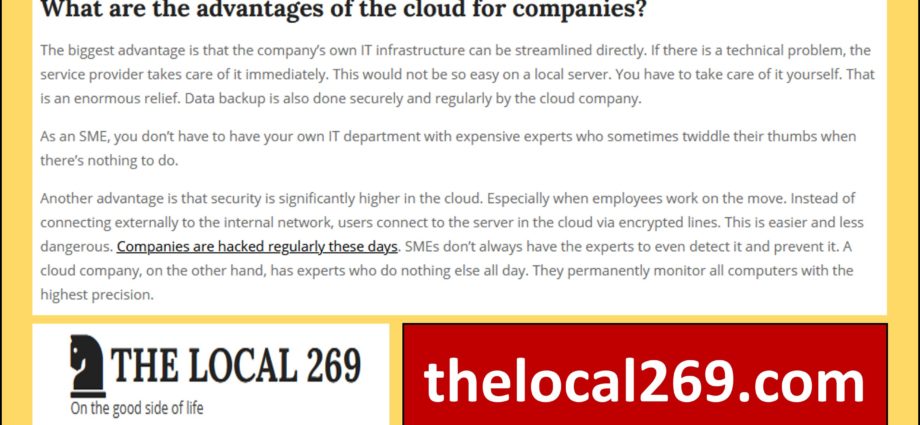Imagine a small company that is on its way to becoming a medium-sized business. Turnover grows, so the workforce is increased to keep up with the work. More and more departments are formed that no longer sit directly next to each other as before. There are more interfaces. More and more people need an e-mail address to communicate with the outside world. In addition, shared drives are necessary so that employees can work on documents together. And to top it all off, ERP software is needed because Excel spreadsheets and individual software solutions for accounting etc. are no longer efficient enough. There is now no way around a complex IT infrastructure. It is time for a professional IT network. But how do you set it up so that the factors of competitiveness and security remain within the right framework?
In the past, it was immediately clear what had to be done. You had to get an IT specialist to install everything. A server is put in the basement. On the one hand to connect the network, on the other hand as a central data storage. All the programmes and tools were then loaded onto it and each user was then allowed to get or use everything via the network that his or her own permissions allowed. But today this is no longer the case; instead, the cloud for companies is making a name for itself in the corporate world. It makes many things easier and more secure at the same time. How can that be? And how does it work? We try to provide an explanation that is understandable for laypeople. We also show the advantages and the possible downsides.
What is the cloud for companies?
Many companies are currently having great difficulty finding trainees who want to work as craftsmen. Keyword: shortage of skilled workers. It is even more difficult to find IT experts, they are few and far between. But if you want to set up a network as an SME, that’s exactly what you need: IT professionals who keep everything running. Unfortunately, it’s not that easy. People are expensive and not always available. If the IT breaks down, the company is unable to work as long as someone finds the time to take care of it.
For this reason, cloud providers have found the solution. They set up a server on their premises, which the users in the company access via an internet connection. Instead of being in the basement, the server is now located at the service provider’s premises. Each new employee is then simply given authorisation and can then connect with his or her local PC. There is no need for a separate network. Software packages or ERP programmes are also located in the cloud. There, too, data transfers take place via the DSL line.
What are the advantages of the cloud for companies?
The biggest advantage is that the company’s own IT infrastructure can be streamlined directly. If there is a technical problem, the service provider takes care of it immediately. This would not be so easy on a local server. You have to take care of it yourself. That is an enormous relief. Data backup is also done securely and regularly by the cloud company.
As an SME, you don’t have to have your own IT department with expensive experts who sometimes twiddle their thumbs when there’s nothing to do.
Another advantage is that security is significantly higher in the cloud. Especially when employees work on the move. Instead of connecting externally to the internal network, users connect to the server in the cloud via encrypted lines. This is easier and less dangerous. Companies are hacked regularly these days. SMEs don’t always have the experts to even detect it and prevent it. A cloud company, on the other hand, has experts who do nothing else all day. They permanently monitor all computers with the highest precision.
What disadvantages can the cloud have?
Of course, it is not completely without disadvantages. One “problem” of the cloud is, of course, that it is accessed via the internet. This means that a corresponding data capacity must be provided so that files and documents can be loaded quickly. For example, if you want to open a database with gigabytes of information, you have to reckon with long loading times. Of course, it’s much faster if there’s a server in the basement where everyone is connected via LAN. Today, fast Internet is well developed in the country’s largest cities. Therefore, such a solution would not be a problem there. But in rural regions it can be difficult to use the services.
